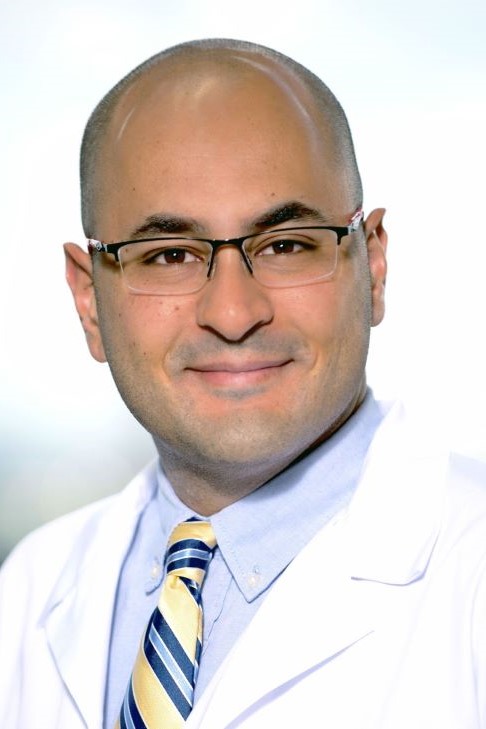Please join us in welcoming our new Adjunct and Affiliate Faculty!
Welcome...
Kristen K. Coleman, PhD- Affiliate Assistant Professor

Dr. Kristen K. Coleman is an Assistant Professor at the University of Maryland (UMD) School of Public Health and an Affiliate Assistant Professor at the UMD Department of Veterinary Medicine. Dr. Coleman is a former Senior Research Fellow in the Emerging Infectious Diseases Programme at Duke-NUS Medical School and the Department of Medicine at NUS Yong Loo Lin School of Medicine in Singapore. She earned her BA in Global Studies from the University of Toledo (UT) and her PhD in Biology (Ecology and Organismal Biology) from the Department of Environmental Sciences at UT. Her research focuses on the environmental detection, epidemiological surveillance, and transmission of emerging and zoonotic pathogens – primarily respiratory viruses such as influenza virus, adenovirus, and coronavirus. She leads the bioaerosols research team within the Public Health Aerobiology Laboratory (PHAB Lab) and has authored several key research papers on airborne transmission of SARS-CoV-2. She is the first UMCP faculty member to be selected as a University of Maryland Baltimore (UMB) Institute for Clinical & Translational Research (ICTR) KL2 Clinical Research Scholar.
Dr. Coleman champions a One Health approach to understanding pandemic respiratory virus transmission and has engaged in One Health infectious disease research in Singapore, Malaysia, Vietnam, and China. She is a former member of the Duke One Health Research team at the Duke Global Health Institute and is now a U.S.-based collaborator of the University of Texas Medical Branch (UTMB) One Health Task Force. Dr. Coleman is excited to join the Department of Veterinary Medicine and expand her One Health research efforts.
Youssef A. Kousa, Ph.D.- Adjunct Assistant Professor

Youssef A. Kousa, MS, D.O., Ph.D., is a physician-scientist specializing in prenatal and neonatal critical care neurology at Children’s National Hospital in Washington, D.C. While in clinical training at Children’s National Hospital, he directed attention to the deadly Zika virus pandemic––rapidly spreading and leading to an overwhelming number of children with brain injury in Latin America. In response, Dr. Kousa founded the Prenatal Infection and Neurodevelopmental Genetics (PING) Consortium (formerly called Zika Genetics), a collaborative scientific effort to identify how prenatal viral infections cause neurodevelopmental disabilities. Toward this goal, the team of 25 leading co-investigators and governmental partners (including CDC and NIH) assembled a population of research participants at 23 international health centers in six countries. Putting together the infrastructure to understand more about risks, Dr. Kousa also developed experimental systems and models to deeply evaluate the link between viral infection and molecular and cellular changes, brain injury, and neurodevelopmental outcomes. To advance that goal, he developed the K-Labs research program, a basic research endeavor that revolves around cell/tissue culture and pre-clinical animal, among other, model systems.
Dr. Kousa completed a combined pediatrics and child neurology residency at Children’s National Hospital and the D.O.-Ph.D. Physician Scientist Training Program at Michigan State University. Through interdisciplinary graduate and post-graduate research training, he studied human genetics, genetic engineering, developmental biology, immunology, and virology. Dr. Kousa’s 33 peer-reviewed manuscripts have an h-index of 18 and over 1,000 citations. Research accomplishments include creation of an adenovirus-based malaria vaccine, discovery of a conserved gene regulatory network in craniofacial and neural tube development, and multiple national and international invited research presentations. Awards and honors span academic, research, service and leadership roles, including the highest honors possible at Michigan State University for a graduate and medical student and an early career award.
Gerardo Kaplan, PhD- Adjunct Professor

Dr. Kaplan received a Doctoral Degree in Biology from the University of Buenos Aires, Argentina, working in variability of foot-and-mouth disease virus. As a Postdoctoral Fellow at Columbia University, NYC, he studied different aspects of poliovirus (PV) biology including mapping the first IRES that conferred cap-independent translation (Pelletier et al., 1988), developing the first subgenomic replicons (Kaplan & Racaniello, 1988), showing that soluble forms of the poliovirus receptor (PVR) neutralized PV altering the viral capsid to uncoating the viral genome (Kaplan 1990), and selecting PVR neutralization-resistant mutants to understand the PV-PVR interaction (Kaplan 1990). In the early 90s, Dr. Kaplan joined the Center for Biologics Evaluation and Research (CBER) of the Food and Drug Administration (FDA) as a tenure-track investigator. At CBER, he discovered the hepatitis A virus (HAV) cellular receptor 1 (HAVCR1, Kaplan 1996), the first identified member of a family of molecules that modulate atopy, autoimmunity, graft-versus-host disease, viral, and cancer immune responses. He was tenured at CBER in 1998 due to his contributions to the HAV filed and regulatory work leading to the licensing of the first HAV vaccines. From 2001 to 2008, he served as the Chief of the Laboratory of Hepatitis and Related Emerging Agents at the Office of Blood Research and Review (OBRR), CBER, where he continued working in hepatitis viruses. At OBRR, his work contributed to the identification of HAVCR family (also referred as TIM family) members as pattern recognition receptors (PRR) of phosphatidylserine, a damage-associated molecular pattern (DAMP) expressed at the cell surface of apoptotic cells (Santiago et al., 2007; Kobayashi 2007). Dr. Kaplan’s Lab showed that the interaction of HAV with HAVCR1 on regulatory T cells (Treg) blocks the T-cell receptor, shuts off Treg function, and controls the pathogenic process of HAV (Manangeeswaran 2012). In response to the FDA need to gain expertise in bioterrorism agents, Dr. Kaplan developed a filovirus program focused on vaccines based on the viral glycoprotein (GP) and BSL2 tests to evaluate anti-GP total and neutralizing antibodies. Dr. Kaplan is currently a Principal Investigator at the Lab of Molecular Virology, OBRR, CBER-FDA and an Adjunct Professor at the University of Maryland, and works in pathogenesis of HAV and the role of HAVCR1 in cell entry of viruses and exosomes (Costafreda 2020).